International conservation charity ZSL partners with living biobank Nature’s SAFE to preserve planet’s most threatened species
how to help
For many species, it’s now or never.
Donate Nowor why not Fundraise For Us?
More than 40,000 species are currently at risk of extinction. Through a unified mission to save those species most at risk a new partnership has been formed between Paignton Zoo and Nature’s SAFE.
Nature’s SAFE is one of Europe’s first Living Biobanks dedicated to preserving endangered animals. From its dedicated lab in Shropshire, registered charity Nature’s SAFE uses unique processing and storage techniques, enabling multiple tissue and reproductive cell samples from endangered species to be stored in a living state at -196oC. Once thawed, these living cells can be used in cell culture or in assisted reproductive technologies to create pregnancies in endangered species.
Samples are collected from animals that die or are neutered in zoos, from tissue that would otherwise be thrown away, saving the genetics of animals that are being lost today. The new partnership with Paignton Zoo provides an essential opportunity to add critical samples to the current 80 species Nature’s SAFE has carefully banked.
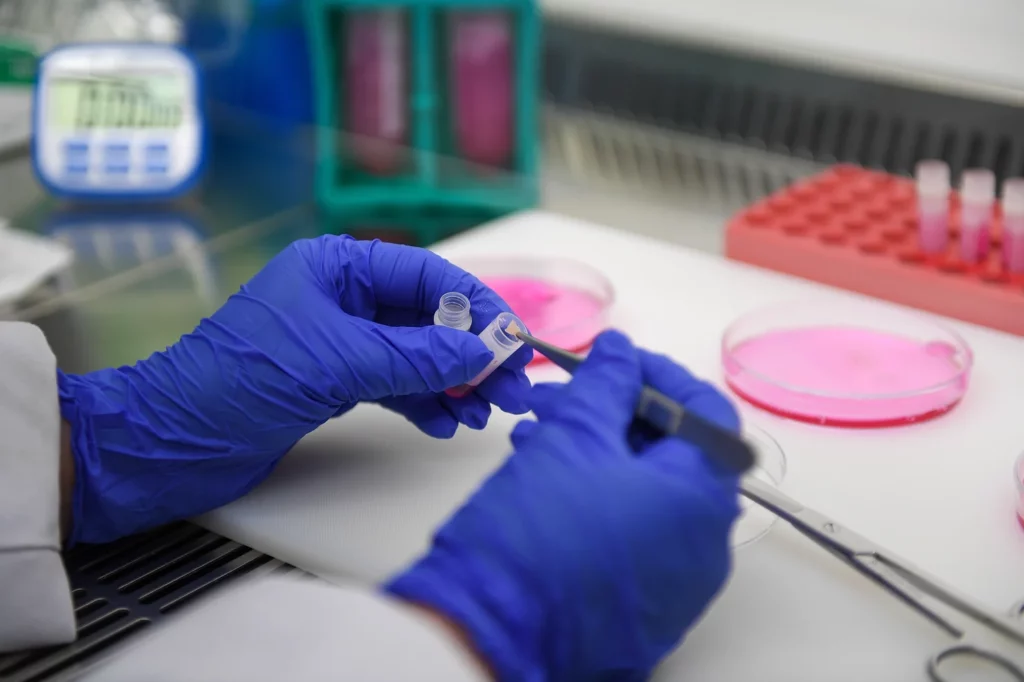
Nature’s SAFE has an ever-expanding, global network of expertise to enable cutting-edge reproductive and biobanking science to be delivered to zoological collections for free. Co-founder and Charity Coordinator, Dr Rhiannon Bolton said “Nature’s SAFE is delighted to be working with Paignton Zoo. With so many animals at risk of extinction, collaboration to achieve a common goal is vital. This new partnership will enable us to save even more animals from extinction.”
Paignton Zoo is part of Wild Planet Trust, a leading conservation charity who act to protect at risk species from the consequences of biodiversity loss. The Trust operates two zoos as well as a number of reserves and they are part of a global network of conservation charities dedicated to protecting animals and their habitats. “The challenges we face in species conservation mean we have to be innovative and forward thinking”, said Dr Kirsten Pullen, Chief Science Officer at Wild Planet Trust. She continued: “While we continue our efforts in captive breeding and conservation initiatives, working with Nature’s SAFE gives us an exciting opportunity to develop another tool to achieve our goal of halting species decline.”
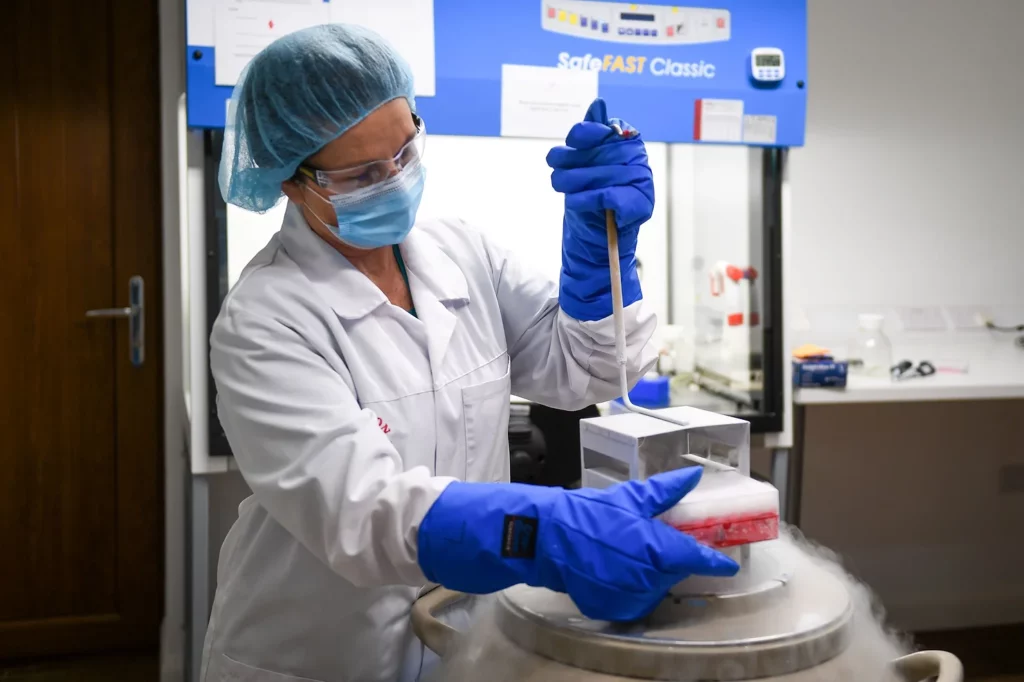
Nature’s SAFE is already working in collaboration with Chester Zoo and The Rhino Fertility Project at the University of Oxford and collaborates with the European Association of Zoos and Aquaria (EAZA) Biobank, with more zoos in the pipeline. The charity would like to invite other UK-based zoos to collaborate on this project. Please contact office@natures-safe.com for more information.
Don’t miss
International conservation charity ZSL partners with living biobank Nature’s SAFE to preserve planet’s most threatened species
Living Biobank Charity, Nature’s SAFE, will be saving rare UK wildlife thanks to Postcode Local Trust.
COP16 held in Cali, Colombia came to a close on November 2nd, 2024. Following the creation of the Kunming-Montreal Global Biodiversity Framework (KMGBF) in 2022, which set out the ambitious aim to conserve 30% of the world's land and ocean and to become 'nature-positive' by 2030, the conference was intended to mobilise action to reach these targets.
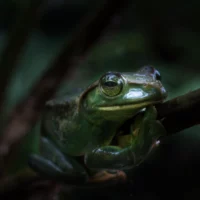
Fea’s tree frog
Total Population: Unknown
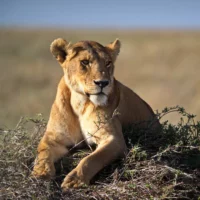
African Lion
Total Population: 20,000 - 25,000 in the wild
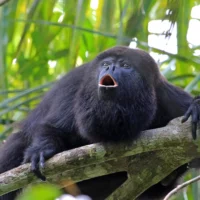
Black howler monkey
Total Population: Less than 5,000 in the wild
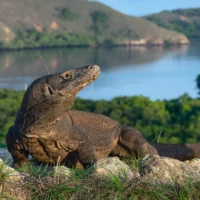
Komodo dragon
Total Population: Around 3,500 in the wild
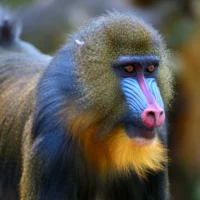
Mandrill
Total Population: Unknown
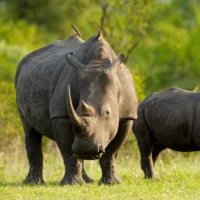
Southern white rhino
Total Population: Around 15,000 in the wild
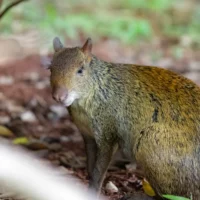
Azara’s agouti
Total Population: Unknown
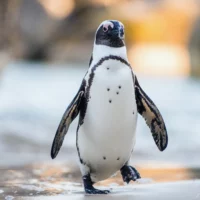
African penguin
Total Population: Less than 40,000 in the wild
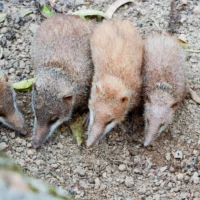
Lesser Madagascan tenrec
Total Population: Unknown
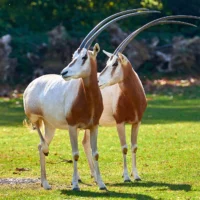
Scimitar-horned oryx
Total Population: Around 400 in the wild
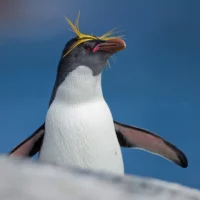
Macaroni Penguin
Total Population: Around 12 million
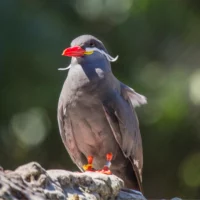
Inca Tern
Total Population: Around 150,000 in the wild
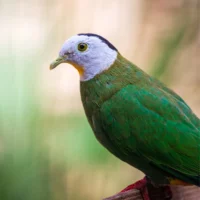
Black-naped fruit dove
Total Population: Unknown
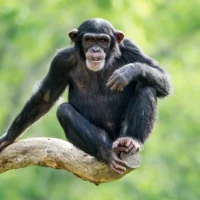
Chimpanzee
Total Population: 170,000 - 300, 000 in the wild
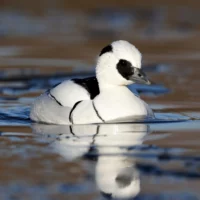
Smew
Total Population: Around 80,000 in the wild
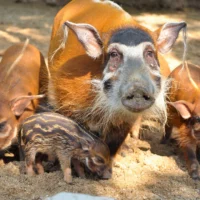
Red river hog
Total Population: Unknown
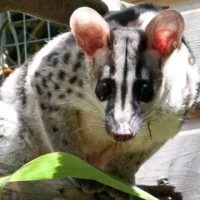
Owston’s palm civet
Total Population: Unknown
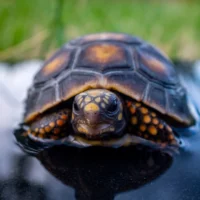
Red-footed tortoise
Total Population: Unknown
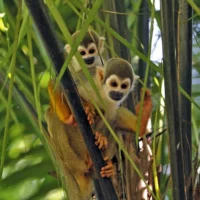
Guianan Squirrel Monkey
Total Population: Around 150,000 in the wild

Bactrian camel
Total Population: Less than 1,000 in the wild
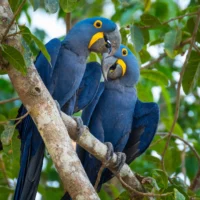
Hyacinth macaw
Total Population: Around 6,500 in the wild
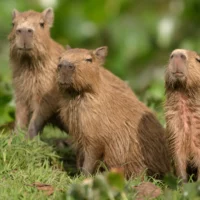
Capybara
Total Population: Unknown
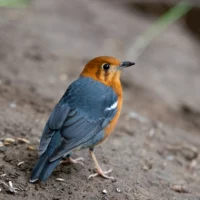
Orange-headed thrush
Total Population: Unknown